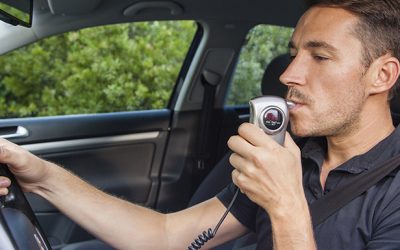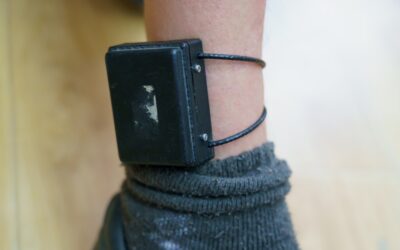
California has many laws regarding drinking and driving, including regulations about transporting liquor. What are the laws against carrying alcohol in a vehicle in the state of California?
Vehicle Code 23222(a) is the primary law against carrying alcohol in a vehicle in California. However, several other laws can also apply to drivers with an open container of alcohol. You can review these charges in fine detail with a Los Angeles DUI lawyer.
We can provide more information about California’s DUI laws when you call or fill out our online contact form.
Vehicle Code 23222(a) – Possessing an Open Container in a Car
VC 23222(a) covers some offenses involving alcohol and drugs in California. Specifically, this section of the law details California’s primary laws on transporting alcohol in a vehicle. According to this law, you can drive with containers of alcohol if you are over 21, and the case is closed and sealed.
That means you can have an open bottle of whisky in the trunk, and it’s legal. You can also have a sealed bottle of wine (never uncorked) sitting next to you in the front seat, and it’s legal. But if the wine is open, even if the bottle is full, you are breaking the law.
What Happens if You Violate VC 23222(a)?
Drivers convicted of VC 23222(a) violation typically face fines of up to $250. The state treats this charge as an infraction in most cases, so you should not face any jail time or the loss of driving privileges.
Vehicle Code 23224 – Underage Possession of Alcohol in a Vehicle
VC 23224 deals with drivers under 21 in possession of alcohol in a motor vehicle. California’s laws on alcohol and drugs for underage drivers are stringent. An underage person with alcohol in the car faces a misdemeanor criminal charge.
The container laws themselves are also much stricter if you’re under the age of 21. As an underage individual, you could face a conviction even if:
- The alcohol was completely sealed (not open)
- You weren’t driving and were simply a passenger
At this point, simply having the alcohol in your possession is enough to be convicted. There are exceptions if you’re accompanied by your parents or acting under their instructions. There is also an exception if transporting the sealed alcohol container was part of your job duties.
What Happens if You Violate VC 23224?
If convicted of a VC 23224 violation, you could face:
- A fine of up to $1,000
- Up to six months in jail
You can work with a criminal defense lawyer to face accusations for a misdemeanor offense head-on.
What Other Laws Does California Have for Carrying Alcohol?
California has several other laws that deal with the transportation of alcohol in a vehicle. These laws include:
Vehicle Code 23225
VC 23225 allows drivers to store open containers in the trunk of their motor vehicle without violating container laws. Keeping alcoholic beverages in your trunk can help you avoid fines if a police officer pulls you over while driving.
Vehicle Code 23226
VC 23226 reiterates that you can face criminal charges for carrying an open can, bottle, or other receptacle carrying alcohol in the passenger compartment of your vehicle. You cannot carry cases with a broken seal or partially drank alcoholic beverages.
Vehicle Code 23229
VC 23229 provides some exceptions to California’s container rules. According to this law, you may avoid prohibitions for open containers as a camper, bus, limousine, or taxi passenger. However, this exception does not apply if the vehicle also contains individuals under 21.
Vehicle Code 23229.1
Finally, VC 23229.1 prohibits in-hire vehicles from transporting alcohol and passengers under 21 at the same time. A lawyer can provide more information about rules for vehicles for hire when it comes to carrying alcohol.
What Happens if the Police See Alcohol in a Vehicle?
If police see alcohol in the vehicle, they’ll use their judgment in choosing how to proceed. If you appear intoxicated or disrespectful, they will likely ticket you—and probably administer a field sobriety test as well.
But if you appear sober and you are polite to the officer, they will often give you a warning and let you go. It’s their call.
If they ticket you, and you are 21 or older, an open container violation is an infraction (traffic ticket), not a crime. The maximum fine is $250.
Can an Open Container Charge Lead to a DUI Accusation?
The real danger with an open container is not the ticket itself but the fact that it makes police suspicious. If officers see an open container, they may suspect drunk driving even if you seem perfectly sober.
Thus, an open container (or sealed container under 21) is often an excuse to administer field sobriety tests or a roadside breath test. Open cases can give “probable cause” to suspect drunk driving. However, there are ways to fight this charge.
Beating an Open Container Charge in California
Many defenses can work against an open container charge. A lawyer may argue that:
- The alcohol was in a locked box or storage bin.
- The alcohol was in an “open” (hatchback style) trunk, being transported in an area of the car not usually occupied by people.
- The alcohol was in the bed of a pickup truck or anywhere else people don’t usually ride.
- The vehicle was a hired car such as a taxi, limousine, or “party bus.” In this case, an open container is allowed (for passengers, not the driver).
- The vehicle was a camper or RV. Again, an open container is allowed for passengers only in this case.
- The police stopped you illegally.
- The stop was legal, but the officers only found the container because of an illegal search.
The best way to fight an open container charge or a related DUI charge is to speak to an experienced Los Angeles DUI lawyer. A criminal defense attorney can review all potential legal defenses.
Learn More About California’s Open Container Laws
What are the laws against carrying alcohol in a vehicle in the state of California? California prohibits drivers from carrying open containers of alcohol in most situations, though you may carry these cases in your trunk in some situations.
You can learn about your legal options if you face charges for transporting alcohol when you contact us.







